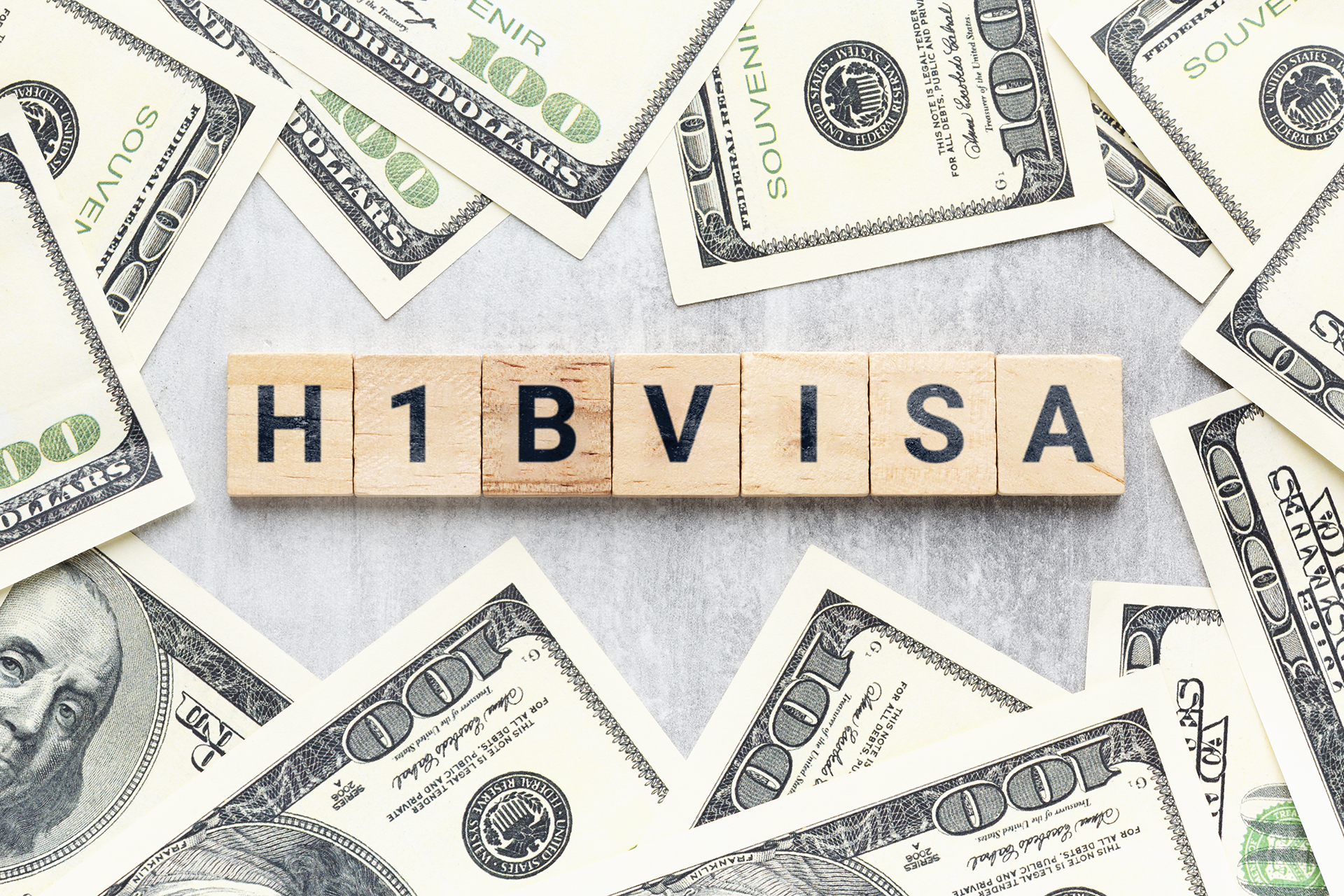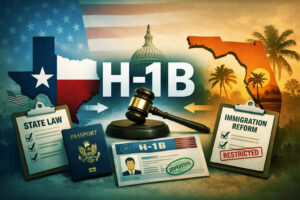On September 19, 2025, a Presidential Proclamation titled “Restriction on Entry of Certain Nonimmigrant Workers.” Following this announcement, U.S. Citizenship and Immigration Services (USCIS) released implementing guidance on October 20, 2025, outlining which H-1B petitions are subject to a new $100,000 payment requirement and the narrow circumstances under which exceptions may apply.
Who Is Subject to the $100,000 Payment
The new fee applies to certain new H-1B petitions filed on or after 12:01 a.m. EDT on September 21, 2025. Specifically, the payment is required if the petition requests consular or port of entry notification for an H-1B beneficiary who does not already hold a valid H-1B visa. It also applies if the petition seeks a change of status, amendment, or extension of stay and USCIS later determines the individual is ineligible for that change or extension—for instance, if the beneficiary is not in valid status or departs the U.S. before adjudication.
Who Is Not Subject to the Fee
The Proclamation does not apply to petitions filed before September 21, 2025, nor to those filed on or after that date for amendments, changes of status, or extensions for individuals already in the United States whose requests are approved. It also excludes beneficiaries holding previously issued, valid H-1B visas. In practical terms, most current H-1B workers and those extending or amending their status while maintaining valid status within the U.S. will not owe the payment. Moreover, if a petition is approved without the fee, the beneficiary may later travel abroad and apply for a new visa without triggering the $100,000 charge.
Exceptions to the $100,000 Payment
The Secretary of Homeland Security may grant an exception in limited circumstances where the worker’s presence serves the national interest, no U.S. worker is available for the role, the foreign worker poses no threat to U.S. security or welfare, and requiring payment would significantly undermine U.S. interests. Requests for exceptions must be emailed to H1BExceptions@hq.dhs.gov with complete supporting documentation. However, USCIS cautions that such exceptions will be extraordinarily rare in practice, even though the agency’s guidance appears to interpret the Proclamation more narrowly than its original language.
What Employers and Employees Need to Know
Employers should begin assessing upcoming filings immediately. Any new H-1B petition for a beneficiary outside the U.S. without a valid H-1B visa stamp will likely trigger the new $100,000 fee. Companies should evaluate early whether an exception request might apply, consult with immigration counsel to prepare supporting documentation, and budget accordingly, as this new requirement represents a substantial cost increase. H-1B employees currently in the U.S. are advised to avoid international travel that would require a new visa issuance until policies stabilize.
Employees outside the U.S. should confirm whether their employer plans to pay the new fee or seek an exception before proceeding with any new petition. Those already in the U.S. in valid H-1B or other nonimmigrant status will not be subject to the fee for their current employment or typical extensions. To avoid complications, employees should consult immigration counsel before making any international travel plans that might trigger a consular visa requirement.
Potential Changes
Multiple legal challenges have been filed against the Proclamation, asserting that the $100,000 payment exceeds presidential authority and violates procedural requirements under the Administrative Procedure Act (APA). No court has yet issued an injunction or stay, meaning the payment requirement remains in effect. Stakeholders are advised to monitor ongoing litigation closely for potential changes or clarifications.
EB-5 as a Viable Alternative to H-1B
In light of these new restrictions and costs, the EB-5 Immigrant Investor Program has become an increasingly viable alternative to the H-1B visa for foreign professionals and employers seeking long-term stability. Unlike the H-1B, which is temporary, the EB-5 program offers a direct pathway to U.S. permanent residency through investment in job-creating enterprises. By making a minimum $800,000, foreign nationals and their families can obtain green cards without relying on employer sponsorship or being subject to random selection in the H-1B lottery.
The EB-5 route provides far greater security and flexibility, allowing investors to live and work anywhere in the U.S., pursue their own ventures, and avoid the uncertainty of changing visa policies. For individuals frustrated by the rising costs, unpredictability, and restrictions surrounding the H-1B program, EB-5 offers a practical, stable, and strategic long-term alternative.
The above article is intended for informational purposes only. Anyone with a specific issue relating to H-1B or EB-5 should consult with an experienced immigration attorney.



